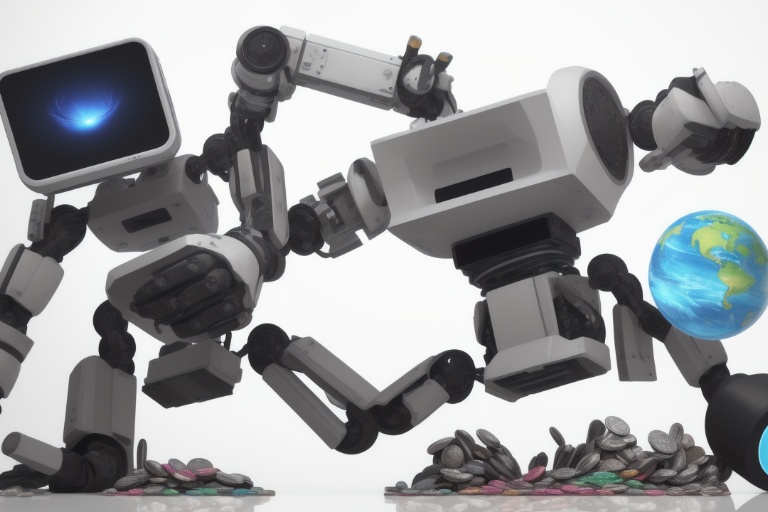Artificial intelligence (AI) has quickly become a transformative force in numerous industries, captivating the public with its potential to revolutionize the way we interact with technology. Platforms such as ChatGPT, Bing, and Bard have particularly stood out by demonstrating capabilities that appear to resemble human thought and expression. Despite their impressive functionalities, these applications don't signify the arrival of true artificial general intelligence (AGI)—the concept of an AI system that can fully replicate the cognitive abilities of humans. This milestone remains a distant objective on the AI development horizon, even with the rapid progression in AI technologies.
Artificial intelligence (AI) has quickly become a transformative force in numerous industries, captivating the public with its potential to revolutionize the way we interact with technology. Platforms such as ChatGPT, Bing, and Bard have particularly stood out by demonstrating capabilities that appear to resemble human thought and expression. Despite their impressive functionalities, these applications don't signify the arrival of true artificial general intelligence (AGI)—the concept of an AI system that can fully replicate the cognitive abilities of humans. This milestone remains a distant objective on the AI development horizon, even with the rapid progression in AI technologies.
The State of Current AI Systems
Currently available AI models excel at specific tasks, displaying a formidable ability to analyze patterns, process language, and generate responses that can sometimes seem indistinguishable from those a human might produce. ChatGPT, for instance, has been programmed to recognize relational word structures and concoct responses based on intricate algorithms developed after careful analysis of human language. These models are trained using vast amounts of data sourced from the internet and adjusted by the feedback of human trainers. This advanced mimicry often creates an impression of human-like thinking, though it is vital to recognize that these AIs do not "think" or "understand" in the same manner as humans do.
Chasing after AGI: An Unrealized Quest
The journey toward achieving AGI is filled with complex challenges and philosophical dilemmas. Rayid Ghani, a professor of AI at Carnegie Mellon University, points out that while remarkable advances have been made in the AI field, the capability to fully replicate human intellect involves numerous breakthroughs yet to occur. Understanding the nuances of human thought — a product of consciousness, experiences, and emotions — raises profound questions about what AGI should represent. Whose cognitive processes are we aiming to emulate, and how do we navigate the rich diversity of human intelligence?
Revisiting the Definition of AI
Moreover, the concept of AI is constantly evolving. Functions that were once hailed as the pinnacle of AI, such as searching vast databases with exceptional speed, have become the norm, integrated into the world through platforms like Google. This ever-shifting landscape prompts a re-evaluation of what constitutes AI as well as its intended purpose.
Augmentation over Replication
There is also growing discourse that questions the pursuit of AGI itself. With the potential for AI to reshape societies, some experts suggest that the primary objective shouldn't be a flawless mirroring of human cognition. Microsoft's Corporate Vice President of Modern Life, Search, and Devices, Yusuf Mehdi, underscores the potential of AI as a tool for improving the human condition. He advocates for AI systems that correct our shortcomings and bolster constructive behaviors, thereby augmenting human abilities rather than merely duplicating them.
The Reality Behind AI Enthusiasm
While platforms like ChatGPT, Bing, and Bard fuel discussions about AI's evolving capabilities, they do not alter the overarching consensus about the timeline to achieve AGI. The excitement surrounding these tools may give the illusion that human-like AI is within reach, but in truth, AGI is a goal that lies well into the future.
Embracing AI's Potential Responsibly
As we navigate the astonishing developments in AI, it is crucial to engage with the broader implications. These technologies offer tremendous opportunities to assist and improve human productivity, creativity, and well-being. Fostering such advancements requires careful consideration of ethical guidelines and societal needs, ensuring that AI becomes an ally to humanity rather than an endeavor to replicate its innate complexities.
In summary, while current AI platforms show remarkable sophistication, true AGI remains an aspiration rather than an accomplishment. The nuanced debate on AGI continues, affirming that our efforts should concentrate on harnessing AI to support human intelligence. The ultimate goal is to craft tools that solve real-world problems and elevate human capabilities, paving the way for an AI-assisted future that is innovative, equitable, and fundamentally human-centric.
Information for this article was gathered from the following source.




